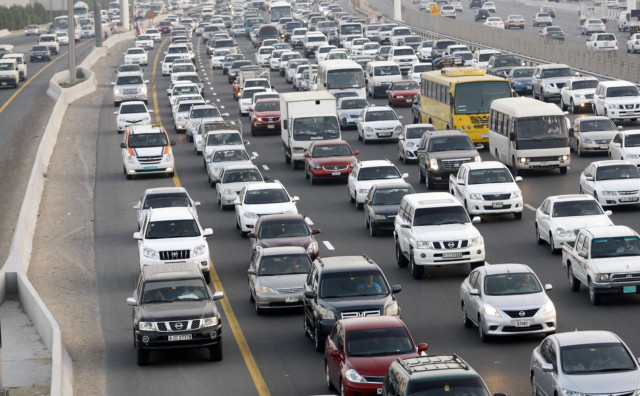
Dubai: Suggesting that Ramadan is the right time to improve the driving culture and learn defensive techniques, experts have urged motorists to take extra care on the roads while fasting.
“Ramadan offers the message of compassion and exchange of goodwill and what better place than on the road to show these virtues. It could help save so many lives and there is no better thing than saving a life,” said Ahmad Hashem Behroozian, CEO of the Licensing Agency at the Roads and Transport Authority, Dubai.
He said the majority of accidents happen because people don’t have patience, they are rude and they tailgate. “I think Ramadan is the right time to practice self-restraint, because self control is the basic principle behind fasting and this should not be applied only to eating and drinking but in all parts of life including driving,” he added.
Indicating that a lot of incidents during Ramadan happen just before iftar, he said: “If people can manage to attend their business meetings in time why can’t they arrange adequate time to reach iftar without the need to over-speed. Ramadan should be the time when accidents go down not the other way round.”
Maitha Bin Adai, CEO of the Traffic and Roads Agency at RTA said most accidents happen because of a lack of discipline among motorists, while pointing out that Ramadan could be the best time to improve this.
“Maintaining basic discipline [such as] keeping distance, not rushing, observing lane discipline etc. is key to improving road safety and I urge motorists to take extra care about these things during Ramadan,” said Bin Adai.
Ramadan offers believers spiritual elevation and health benefits, but fasting also does have physical effects on the human body, particularly as Ramadan coincides with the height of summer this year, which could impact driving ability.
“Fasting does have [] physical effects on the human body. Especially in peak of summer, it can easily lead to dehydration and fatigue. Fasting can cause temporary low blood sugar which will drastically affect the attentiveness, concentration, vision and action/reaction, which means motorists need to take extra care during Ramadan and make sure they are fit to drive,” said Abdul Razzaq, assistant manager at Emirates Driving Institute.
He added that fewer hours of sleep, irregular meal times and evenings filled with prayers, social gatherings and events also affect driving ability.
However, he said if certain precautionary measures are taken and conscious efforts made to improve driving habits, Ramadan can work wonders.
To ensure safe driving and the safety of passengers and other road users during Ramadan, he suggested motorists should have adequate and planned sleep, avoid driving after heavy iftar meals, not to drive when feeling weak, not rush to your destinations and restrain from aggressive driving.
He urged that good and kind deeds towards others and good habits on the roads during the month of Ramadan should become permanent habits for the future.
To ensure the safe movement of traffic, the RTA has changed the hours in which heavy trucks can use roads during Ramadan.
On Ittihad and Shaikh Zayed Roads, on Shaikh Rashid Road as well as area near Deira City Centre and Bur Dubai the ban on truck movement will begin from 7am instead of 6am to 10pm.
In the other Emirate’s the ban will start at 7.30am and end at 9.30pm instead of the usual timing.










